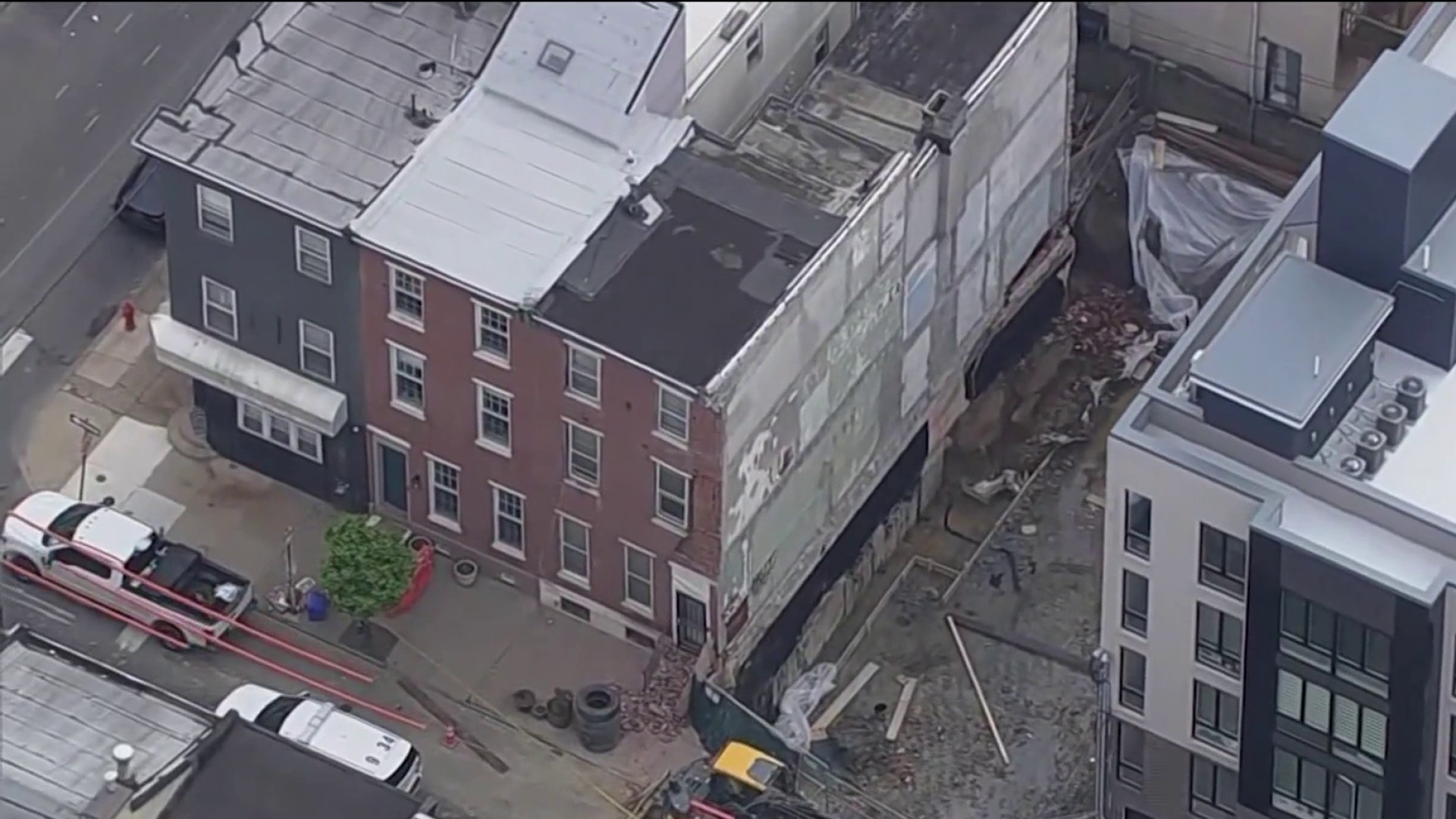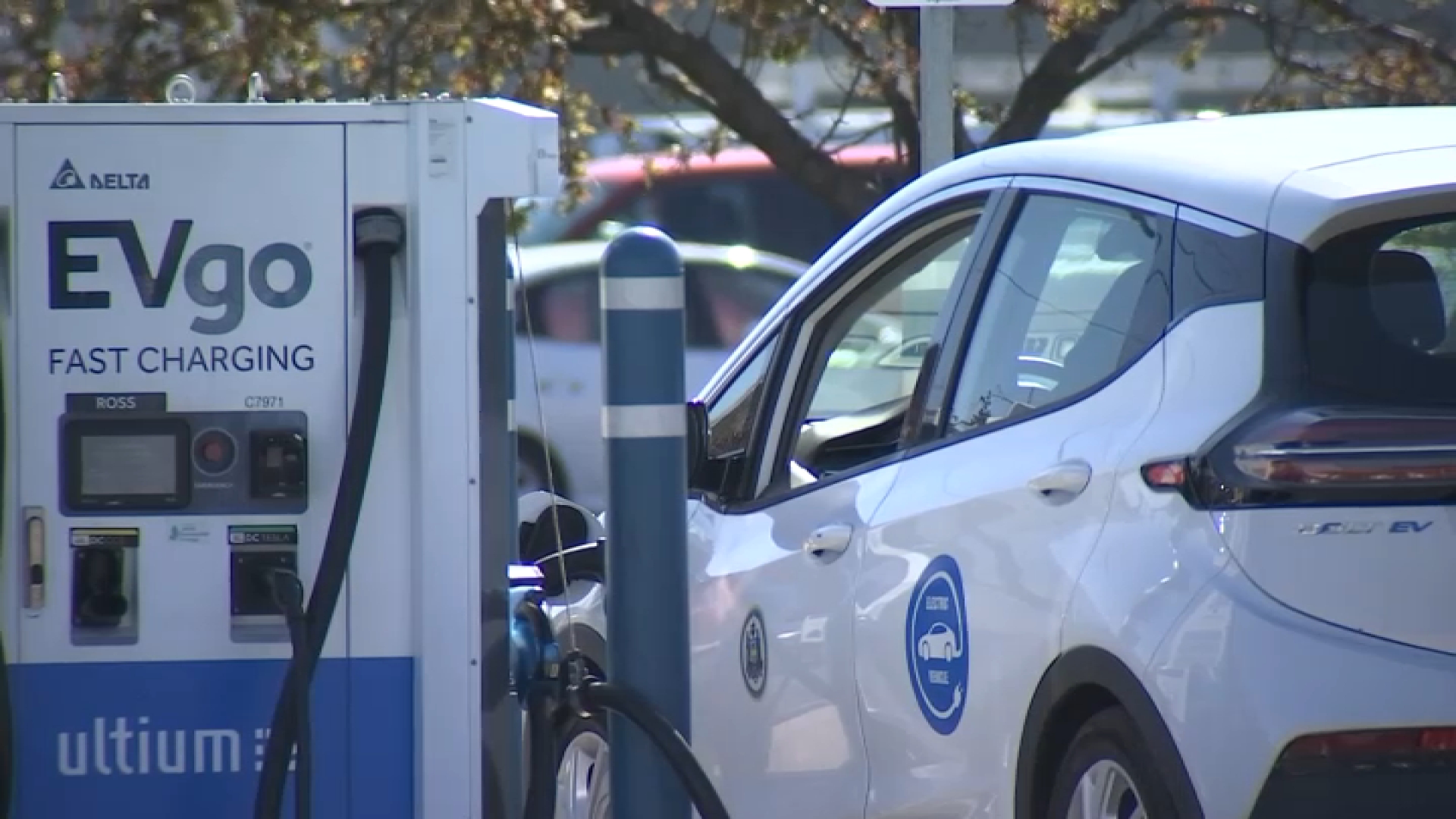On a cold fall day, several electric vehicle drivers were waiting for a turn to plug into one of the public chargers at a strip mall parking lot in South Philly.
“It's like, man, you got to be here 40 minutes, 50 minutes, and then you got to spend another hour here to charge,” said Kevin Taylor, an Uber driver who two months into using an electric vehicle was already considering switching back to gas.
Abe Burger was also waiting. He was eyeing up a spot taken by a city vehicle.
“It does like plug up and really kind of backlog the people that are waiting,” he said, referencing the city cars.
Get Philly local news, weather forecasts, sports and entertainment stories to your inbox. Sign up for NBC Philadelphia newsletters.
The NBC10 Investigators went down to the South Philly public charging station several times. Almost every time city workers driving electric vehicles were there charging or waiting to charge in the middle of their workday.
Some of the workers did some paperwork while others said their jobs required them to be at site inspections. Sitting in a car for 40 minutes or more was a loss of productivity.
This led to a domino effect of other drivers waiting for the city workers to finish charging.
Investigations
“It would be nice, you know, for them to have a way to charge overnight in like their own facility,” Burger said.
It turns out they do.
The city owns 107 electric vehicle chargers for its EV fleet of 261.
While some of the chargers are located in the parking lots for corresponding departments such as The Free Library and the Water Department, many of the chargers are located in fleet shops where cars would go if they break down. They aren’t regular charging spots.
Other chargers are located at facilities that aren’t even assigned electric vehicles-- such as police districts and the prisons complex.
A review by the NBC10 Investigators of the city’s chargers revealed that none of them were installed with the required electric permits.
The city’s Licenses and Inspections Department has issued violations and $300 fines to at least 46 of the 57 city sites that have EV chargers.
“These chargers were installed by each different department,” said Dominic McGraw, the city’s deputy director of energy services, who oversees the city’s electric vehicles and infrastructure. ”I think that there was just some confusion around the need for permits, and we're currently rectifying that.”
L&I, which has the most EVs in the city at 115, doesn’t have any chargers at its office buildings and parking lots.
Instead, they are told to use the chargers owned by EVGO, which has Philly locations in South Philly, Fishtown and Port Richmond.
“The EVGO charging contract is to supplement charging while we increase our charging infrastructure,” McGraw said.
McGraw also oversees the city’s implementation of the Clean Fleet Plan.
In 2021, Philadelphia released its Municipal Clean Fleet Plan, a document that would guide the city in switching its 5,000 gas-powered vehicles to clean and electric cars.
The plan ranked departments by top fuel consumption in an effort to prioritize which cars would switch to electric first.
The recommendation was to start with the Water and Parks and Rec departments -- both of which have some EVs -- 33 and 16, respectively.
L&I was not mentioned as a priority in the plan. And yet, not only did they get the most EVs but they also assigned 102 of their EVs as take home vehicles with no chargers assigned to them.
“It is not for us to know the operations of the department,” McGraw said.
But part of the city’s own plan was to create a Clean Fleet Committee to oversee the procurement of vehicles and the deployment of charging stations.
McGraw said that while the Clean Fleet Committee does exist and meet, the plan was just a guide and not something that would be followed in its entirety.
“We're figuring things out as we go and seeing what works, what works and what doesn't,” he said.
That's not how it’s supposed to work, according to experts we spoke with, including Kelly Reagan, the fleet manager in Columbus, Ohio. That city was cited in the city’s plan as a model for EV deployment and infrastructure.
He said before the city and surrounding counties rolled out their fleet of 300 EVs, they made sure to have charging infrastructure in place for every vehicle.
“What we do is make a charger available for that particular vehicle where that particular operator resides, where they clock in and clock out. So they've got charging infrastructure,” Reagan said.
Sean Greene is the manager of the office of freight and clean transportation at the Delaware Valley Regional Planning Commission. He advises municipalities on EV fleet and infrastructure. He did not work on Philly’s current plan.
He also says municipal chargers should be placed in the locations where the city cars park overnight.
“When the vehicle is not being used, of course that's the best time to charge,” he said. “And the cost may actually come down because there is less demand on the electric grid over that time.”
Greene says using the public fast chargers is usually discouraged for municipal cars.
“When you go to these fast chargers, that's either equal or more than the cost of gasoline,” he said.
Philly is paying $0.49 per Kilowatt at the EV-GO fast chargers, which can take up to an hour to charge.
The city is paying $0.14 per Kilowatt for its own slower chargers that take 8 to 10 hours to charge.
Reagan says that unlike Philly, Columbus doesn’t use public chargers for its fleet.
“When you've got city people sitting here doing this,” he said as he twirled his thumbs, “‘Well, gee, I wonder when I could get plugged in and get my charge?’ You know, that's no way to run a city.”
Plus, the city’s own consultants for its Clean Fleet Plan advised against the fast chargers, saying: “it takes 30-60 minutes to get a full charge on a DCFC depending on the battery size of the vehicle, which means staff would have to likely wait around during the charging session, reducing productivity.”
McGraw says the city is working on a new plan for comprehensive citywide charging.
“We're working on that and it's not without hiccups,” he said. “And so, we're trying to rectify where we can.”



